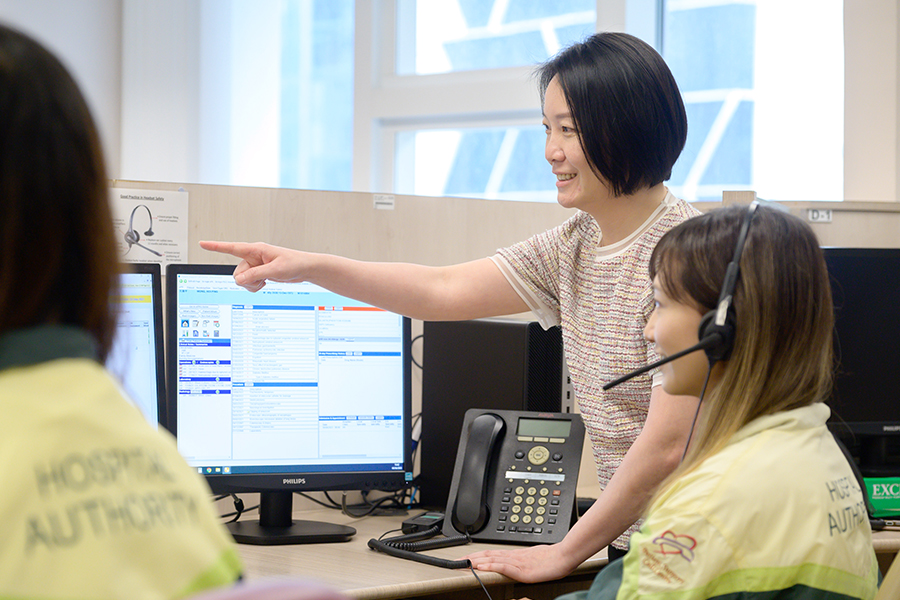PSCC identifies higher risk DM patients by AI
 “I didn’t take the medications at first because I was concerned about the side effects. Fortunately, the nurse from Patient Support Call Centre (PSCC) explained that the medications are essential for controlling my diabetes.” says Ms Lau. She was diagnosed with diabetes mellitus (DM) in late 2022, and was then recruited to the Chronic Disease Management (CDM) Programme due to her potential risk of developing chronic kidney disease. “The nurse calls me from time to time and advises me on proper diet, blood glucose and blood pressure monitoring etc. I am now confident in controlling my blood sugar.”
“I didn’t take the medications at first because I was concerned about the side effects. Fortunately, the nurse from Patient Support Call Centre (PSCC) explained that the medications are essential for controlling my diabetes.” says Ms Lau. She was diagnosed with diabetes mellitus (DM) in late 2022, and was then recruited to the Chronic Disease Management (CDM) Programme due to her potential risk of developing chronic kidney disease. “The nurse calls me from time to time and advises me on proper diet, blood glucose and blood pressure monitoring etc. I am now confident in controlling my blood sugar.”
The pilot programme was launched in 2021, utilising clinical data and artificial intelligence (AI) of the DM Risk Model to identify patients at relatively higher risk of developing or having developed chronic kidney disease at an early stage. “Each patient will receive around 11 calls over six months. Nurses also adopt ‘Motivational Interviewing Skill’ to make a positive behavioural change. We encourage patients to express their own barriers and work on a solution together. Take smoking cessation as example, we let our patients to identify their own enablers and acknowledge their ambivalence and feelings. The patient’s personal involvement is more persuasive than didactic communication. Other factors like patients’ dietary habit and lifestyle as well as their job nature are also considered in the customised care plan.” says Janus Chan, Registered Nurse of PSCC.
Currently, there are over 540,000 active diabetic patients receiving treatment in Hospital Authority. Jess Liu, Unit Manager of PSCC, says she is confident that the programme would improve patients’ health and prevent or delay the onset of chronic kidney disease. “The programme resumed in April this year. We are actively following up patients in need and will collect data to evaluate the effectiveness in six months’ time. We plan to review the feasibility of extending the programme to other chronic diseases after evaluation.”